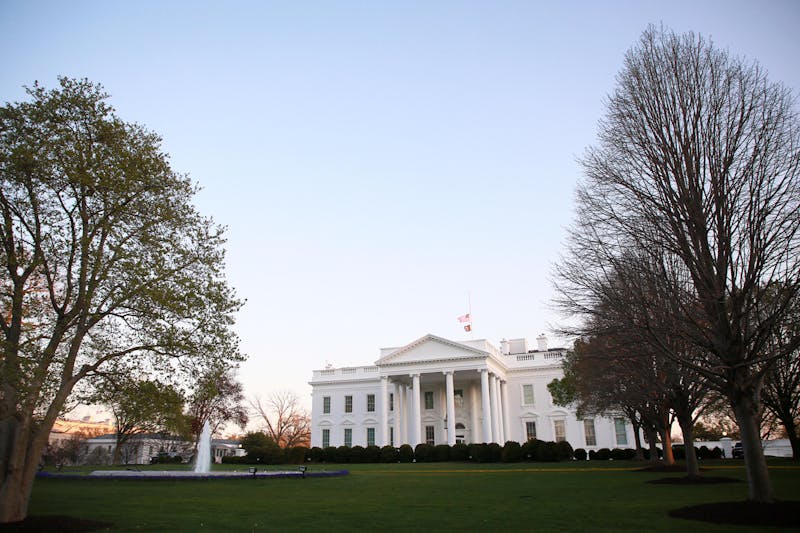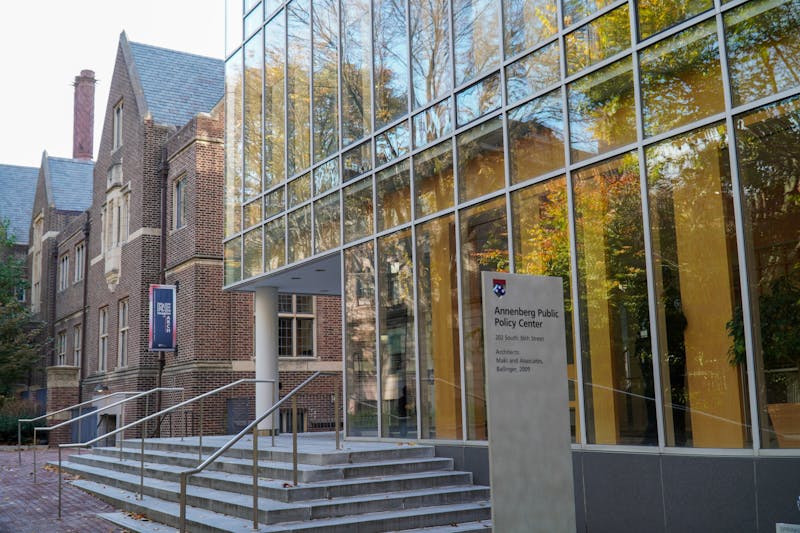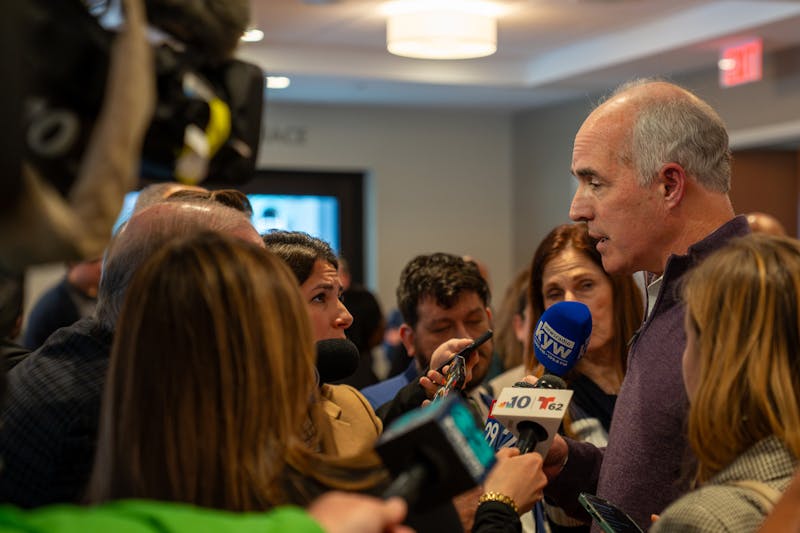
Penn has been under increasing scrutiny from Congress in recent months amid concerns about antisemitism and free expression on campus. Even after former Penn President Liz Magill's resignation in December 2023, Penn has been under investigation by two different congressional committees, posing threats to the University's tax-exempt status and federal funding.
In light of the increased focus placed on Penn by Capitol Hill — and a recent bill to restrict funding introduced by a Penn alumnus — The Daily Pennsylvanian analyzed the prevalence of Penn graduates and affiliates in Congress.
The DP's analysis showed that Penn alumni or affiliates have served in every Congress since the foundation of the United States. Currently, seven Penn alumni serve in Congress — all in the United States House of Representatives — and Penn has averaged approximately six alumni and affiliates in the legislative branch since 1789.
Since the first Congress, Penn alumni and affiliates have represented 26 states, with a majority representing Pennsylvania.
Penn alumni and affiliates have represented 26 different states in Congress
A total of 107 alumni and affiliates have represented the state of Pennsylvania in Congress since the United States’ founding. New Jersey trails at a distant second with 25 Penn affiliates, and Delaware has the third most at 13 affiliates.
Penn alumni have represented almost every state east of the Mississippi River — with a majority concentrated in the mid-Atlantic region — but only five Penn alumni were elected to represent other states. No Penn alumnus has ever represented populous states such as California, Texas, and Michigan.
Current Penn alumni in Congress include 1986 University of Pennsylvania Carey Law School graduate Rep. Matt Cartwright (D-Pa.) and 1969 Wharton graduate Rep. David Scott (D-Ga.).
Penn alumni and affiliates have served in every Congress since the nation's founding
Examining political affiliation, the DP found that — across all Congresses — the total number of Republican Penn alumni and affiliates exceeds the number of Democratic Penn alumni and affiliates. In the past century, 47 of the Penn alumni and affiliates in Congress have been Republicans, compared to 35 Democrats over the same time period.
Political science professor Marc Meredith said he was not surprised at Penn’s representation in Congress because the University has a strong representation in fields that lead people into politics.
“Common pathways into politics are things like being a lawyer, working in business or finance, occasionally working in medicine — these are all things that Penn has a great reputation in training people,” Meredith said.
Meredith also noted that Ivy League schools can provide alumni with a strong network of wealthy donors who can contribute to their campaign funding.
“A really important element of any congressional campaign is fundraising,” Meredith said. “And so because of the presence of undergraduate business [with the Wharton School] and the fact that these people [often know] some quite wealthy people, who then become donors to congressional campaigns, I could see that being a small difference [between] people who have a Penn degree compared to other peer institutions.”
College junior Louis Dong — who interned for Rep. Brendan Boyle (D-Pa.) during his participation in the Penn in Washington program — said his status as a Penn political science student “carried a certain weight” when applying for his congressional internships. However, he said the number of Penn alumni currently in Congress was “shocking.”
“[Congress] does not pay very well,” Dong said. “Obviously, we [Penn students] have this culture of striving for higher-achieving jobs.”
Meredith said that it was “impressive” that Penn has maintained consistent representation in Congress since the nation’s founding, but noted the proportion of Penn affiliates was only 1% of all members of Congress. He also cited an overrepresentation of congresspeople with graduate degrees.
“I know Congress represents the American population, but [a majority] obviously didn’t come from an Ivy League,” Dong said. “And voters will obviously gravitate more towards [Ivy League graduates].”
The Daily Pennsylvanian is an independent, student-run newspaper. Please consider making a donation to support the coverage that shapes the University. Your generosity ensures a future of strong journalism at Penn.
Donate












